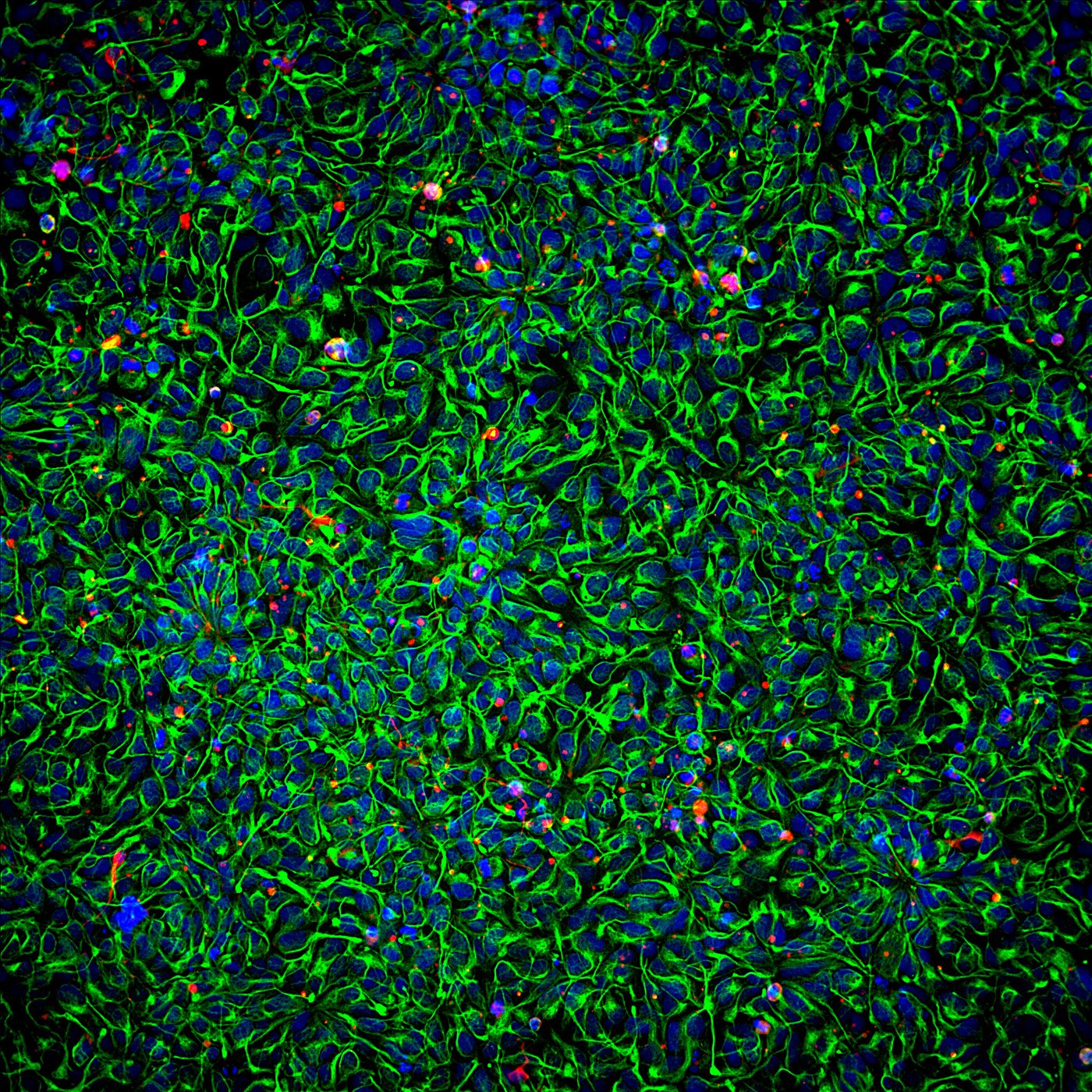
Neural stem cells derived from pluripotent stem cells (blue: cell nucleus; green and red: marker for early neural progenitor cells) [Copyright: Institute of Reconstructive Neurobiology, Bonn]
Representatives from politics, medicine, law and ethics discuss the need to reform the German Stem Cell Act at a dialog event organized by the Stem Cell Network NRW.
During the event on March 31, 2022, at the Goethe Museum in Düsseldorf, experts from the fields of medicine, law and ethics first provided insight into the current state of affairs. Afterwards, there were lively discussions with the participants on whether the regulations of the German Stem Cell Act still serve the current challenges society and research are facing. Various representatives from federal and state politics also took part in the discourse.
Christina Berndt from the Süddeutsche Zeitung led through the day and moderated a panel discussion with the speakers in each module, in which the audience participated actively:
Module 1: Normative classifications of the concept of the term embryo.
Module 2: Legal and regulatory obstacles for translation
Module 3: Future perspectives
The participants agreed that there is an urgent need to revise the German Stem Cell Act and the Embryo Protection Act. Comparisons with other countries show that the legal regulations for the derivation of embryonic stem cells are more restrictive in Germany than in the other countries. At the same time, some physicians and lawyers complain about a double standard in German legislation, since research on embryonic stem cell lines derived after May 1, 2007, is prohibited in Germany - but results and possible therapies based on foreign research are readily used in Germany.
Furthermore, legal restrictions on researchers who want to develop new clinical treatments for patients are a problem: With the biomedical advances of the last decades, new therapies could be developed which, if successful, promise clinical applications and thus commercial exploitation of the research results. For clinical trials, partners from the private sector are needed to cover the enormous costs. However, due to the legal ban on commercialization of research results, there is no incentive for companies to invest in corresponding projects. In addition, high regulatory hurdles lead to long and unnecessarily complicated approval processes. This could be remedied by practical measures such as the establishment of central contact points.
Concerning ethical classification, we have to accept the conclusion that the social camps that existed at the time of drafting of the Stem Cell Act twenty years ago are still present today and that the arguments put forward have not changed. However, this raises the question which changes in attitudes have occurred as a result of demographic change in the population as a whole, the declining clerical influence, and the increasingly application-focused debate. The collection of reliable data would be an important next step to be able to conduct the difficult social discussions in a timely manner.
The conclusion among the participants was that we should not wait another 20 years to find the answers to these questions.